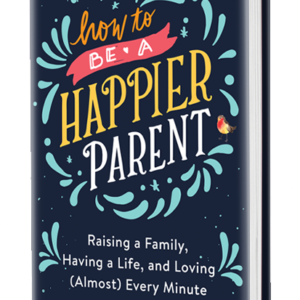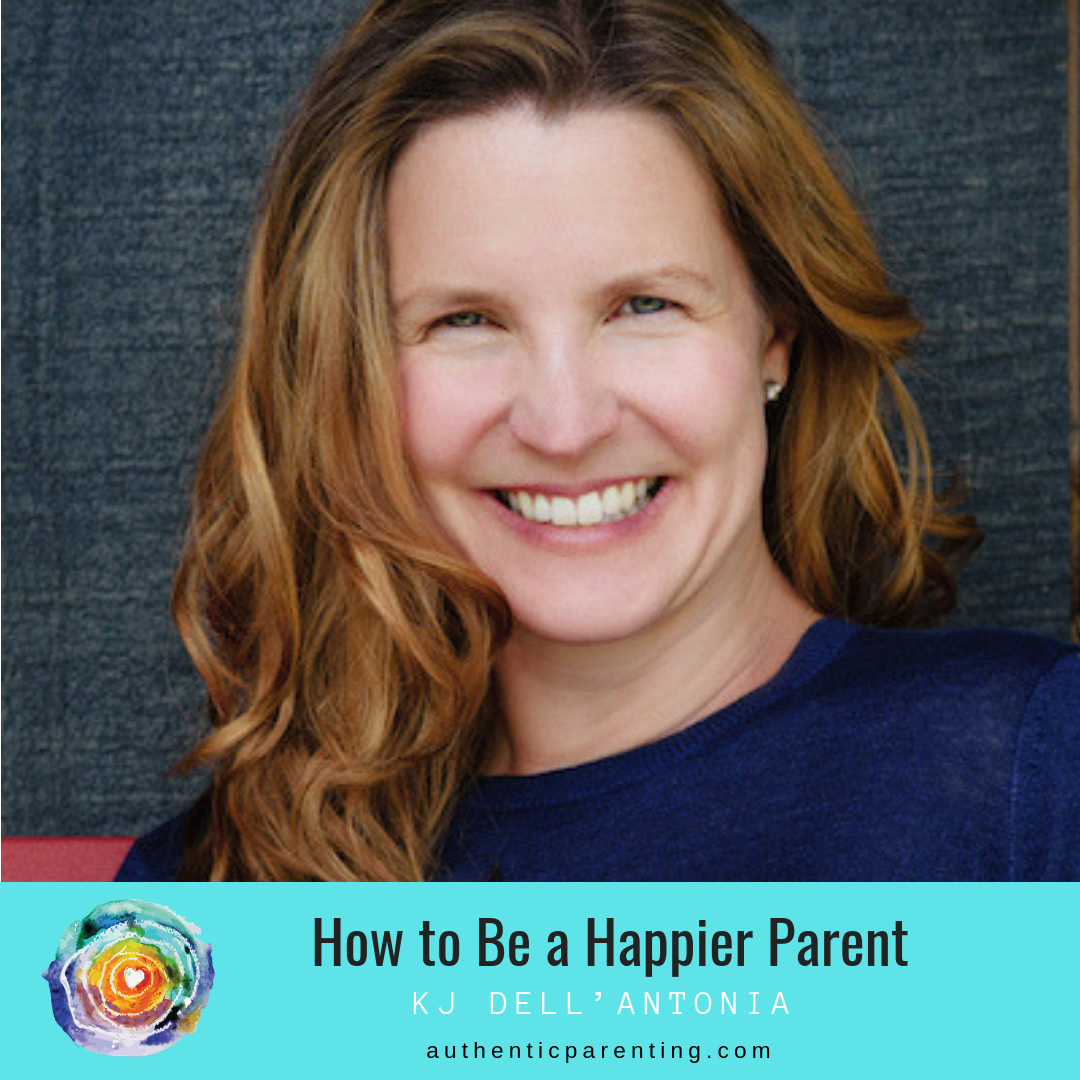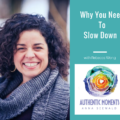This episode features an interview with KJ Dell’Antonia, a mother of four and author of “How to Be a Happier Parent”. The inspiration behind the book was KJ’s personal experience of feeling dissatisfied with parenting on a day-to-day basis. Her biggest struggles being mornings, sibling disputes, and homework. Her family’s life was busy and on-the-go, making everyone feel exhausted by the end of the day and leaving no room to enjoy each other. Realizing that she wanted nothing more than a pleasant and enjoyable experience raising her family, KJ read and even conducted a lot of research on how to be a happier parent, and shares some tips in this episode:
Highlights
- There is a collective pressure to “parent” in today’s society, which focuses on the expectation of results, rather than experiences. This pressure often leads to unhappiness in the parent.
- Even further unhappiness stems from the stress of living in a child-focused society where the economical and political systems are not very accomodating (ex: no paid parental leave).
- The most surprising finding during KJ’s research came from an open-ended question that was posed to almost 1,000 parents: “What makes you the least happy?”
- An overwhelming majority of parents said that they struggle with enforcing rules and discipline.
- This is a fairly recent phenomenon. In the past, there was a general consensus on how to parent, which made it easier for parents to enforce rules and punishments.
- Often, parents don’t want to simply skip the hard times, they want to be present and be able to enjoy their children. To make that possible:
- Parents should make sure that their own needs are met and their stressors reduced as much as possible.
- Double-check that the children’s needs are consistently being met (ex: balance activities vs. free time as the child’s needs change).
- Break the dependency cycle by putting more responsibility on the child and letting them face the natural consequences of their actions.
- Not absorbing the child’s moods/problems when the parent is happy, and vice-versa, not letting their own bad mood spoil their child’s good one.
- Allowing the child to feel their feelings without forcing positivity. Instead, listen and offer validation.
KJ’s tip to all parents: remember that you are not raising perfect children, but rather, you are raising future adults.
The four main things that happier parents do differently are:
- Shift from heavy involvement when kids are young, to giving them more independence as they grow.
- Don’t put their children’s everyday needs above their own.
- Look for the good in daily experiences and allow those good moments to carry them through the rougher times.
- Know what is important vs. what is background noise.
About my guest
Five years of editing the Motherlode column for the New York Times taught KJ Dell’Antonia this: family can be a source of joy, not stress. But for many of us, it’s not. Her reporting and research on parental happiness led to her new book, How to Be a Happier Parent. She writes regularly on the personal and policy aspects of parenthood for the New York Times and other publications and is the co-host of the #AmWriting podcast. KJ lives in New Hampshire with her husband, four children and assorted horses, chickens, dogs and cats.
Resources and links
Website: kjdellantonia.com
Twitter: @KJDellAntonia
Facebook: https://www.facebook.com/kjdellantonia
Instagram: @kjda
Book: How to Be a Happier Parent: Raising a Family, Having a Life and Loving (Almost) Every Minute
Other episodes you may enjoy:
- The Danish Way of Parenting
- The Cost of Overprotective Parenting
- Use The Secret of Improve in Everyday Parenting
Episodes mentioned by a listener

Did you enjoy this episode?
Subscribe to Authentic Parenting Podcast on Apple Podcasts, Google Podcasts, Spotify or if you have an Alexa, you can simply ask, “Alexa, open Authentic Parenting!”
Here is how you can subscribe to the podcast. Watch my quick video tutorial.
Please take a few minutes to rate and review the show on Apple Podcasts or iTunes. Your feedback is valuable and it helps the growth of the show.
With gratitude,
Anna





